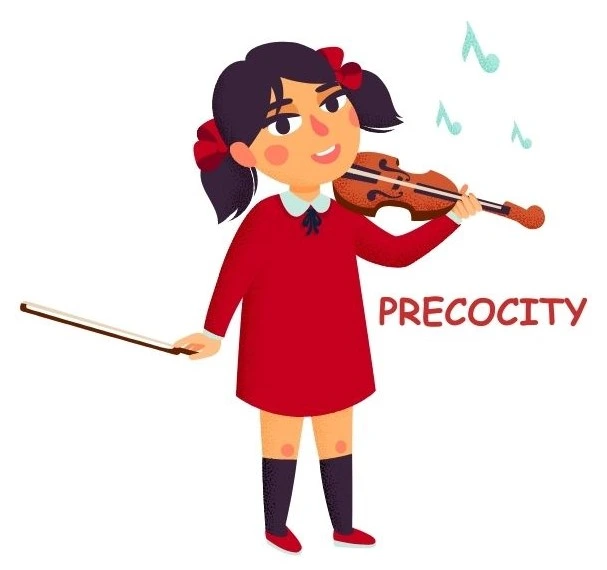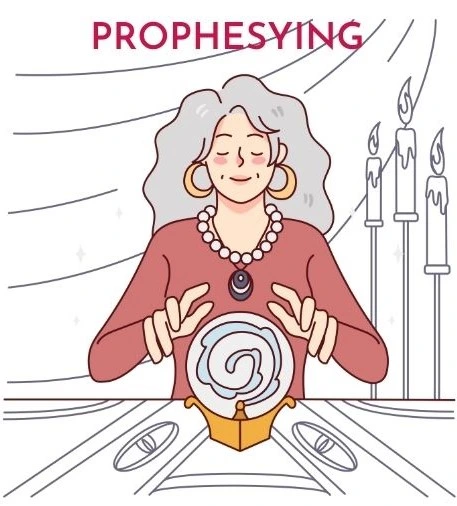This blog post aims to explore the world of P Series Mind Rubrics (along with their interpretations) from Kent’s Repertory, delving into their psychological significance and the corresponding remedies they suggest.
Read Dr. J. T. Kent’s Biography by following the link.
In the realm of homeopathy, Kent’s Repertory plays a crucial role in uncovering the intricate links between emotional states and physical symptoms.
By understanding the deep emotional meanings behind these rubrics, one can adeptly navigate the field of homeopathy to pinpoint and apply the most appropriate remedies based on an individual’s distinct mental and emotional conditions.
Table of Contents
TogglePERSISTS in nothing

- “Persists” means to keep trying or not giving up on something, even if it’s challenging or not going well.
- “In” refers to the situation or activity where this effort is happening.
- “Nothing” refers to the absence of results or achievements.
- So, “persists in nothing” means someone continues their efforts, but they’re not achieving any positive outcomes.
- It might describe a person who is determined and keeps working, even when they’re not seeing success.
- This could be seen as a positive trait because it shows dedication and a strong work ethic.
- However, it could also suggest that the person is not recognizing when their efforts are not leading to progress.
- While persistence is valuable, it’s also important to assess whether the chosen path is effective and consider adjusting strategies if needed.
- The phrase highlights the idea that consistent effort is important, but it’s equally crucial to evaluate and adapt one’s approach to achieve meaningful outcomes.
In simpler words, “persists in nothing” describes someone who keeps trying hard, even if they’re not getting any positive results. It shows determination, but it’s also essential to recognize when a different approach might be needed to achieve success.
Remedies: Lac-c., lach., plan.
PERTINACITY

- “Pertinacity” is a noun that describes the quality of being persistent and determined in pursuing a goal or course of action.
- It implies a strong and unwavering commitment to achieving something, even in the face of challenges or difficulties.
- Someone with pertinacity shows a firm resolve and doesn’t easily give up, no matter how tough the circumstances may be.
- This trait often involves a mindset of perseverance and the willingness to put in continuous effort.
- Pertinacity can be seen as a positive attribute, as it demonstrates dedication, resilience, and a strong work ethic.
- However, there can be situations where excessive pertinacity might lead to stubbornness or an unwillingness to consider alternative approaches.
- The word implies a sense of tenacity and a refusal to be swayed or discouraged by obstacles.
- People with pertinacity often stay focused on their objectives and are willing to put in the time and effort required to achieve them.
- Balancing pertinacity with flexibility is important, as it ensures one remains determined while also being open to adjusting strategies when necessary.
In simpler words, “pertinacity” means being very determined and not giving up easily, even when things are tough. It’s like having a strong will to keep going and achieving your goals, no matter what challenges you face. While it’s a positive quality, it’s also important to be open to new ideas and willing to adjust your approach when needed.
Remedies: Caps., dros., stram.
PIETY nocturnal

- “Piety” means deeply believing in and respecting religious ideas and practices.
- It shows a strong connection to spirituality and truly following religious responsibilities.
- People with piety care a lot about their faith and try to live by its good values.
- “Nocturnal” refers to things happening at night, when it’s dark.
- “Piety nocturnal” combines these words, meaning devotedly practicing faith during the night.
- This can include praying, doing religious routines, or thinking deeply during quiet night hours.
- “Piety nocturnal” can also mean feeling personally close to beliefs while being alone at night.
- It might show a strong faith connection and feeling more spiritual when the world is calm.
- The phrase focuses on expressing faith with dedication and thought at night.
- Overall, “piety nocturnal” shows true commitment to faith, especially at peaceful nighttime.
In simpler words, “piety nocturnal” refers to the sincere devotion and commitment to religious beliefs, practices, or principles that is observed or expressed during the nighttime. It suggests a strong spiritual connection and a time of quiet reflection and devotion, often associated with the tranquillity of the night.
Remedy: Stram.
PITIES herself

- “PITIES” means having a sense of sorrow or empathy for someone’s hardships.
- When someone “pities” herself, she extends this empathy towards her own challenges.
- It’s like having a compassionate attitude towards her own difficulties.
- This can involve recognizing her own struggles and offering herself solace or understanding.
- “Herself” refers to the person feeling this sense of pity, in this case, the woman or individual in question.
- This phrase suggests a self-nurturing perspective, where she acknowledges her own struggles and offers herself care.
- “PITIES herself” might signify a moment of self-reflection, pondering her own situation.
- It indicates the ability to treat herself with the same empathy that she might offer to others.
- This phrase emphasizes self-compassion, acknowledging her own emotions and treating herself tenderly.
In simpler terms, “PITIES herself” means she feels sorry for her own difficulties and treats herself with understanding. It’s like giving herself the same compassion she would give to someone else. This shows her awareness of her own struggles and her ability to be gentle with herself.
Remedies: Agar., nit-ac.
PLANS making many

- “PLANS” are organized ideas or methods designed to achieve certain goals or outcomes.
- When someone is “making” plans, they are actively crafting or forming these strategies.
- “Making” indicates the process of creating and shaping these concepts and approaches.
- “MANY” suggests a substantial number or a wide variety of plans being generated.
- This implies that the individual is coming up with numerous distinct strategies.
- This phrase reflects a dynamic and involved mindset towards brainstorming and preparation.
- “PLANS making many” might indicate a resourceful and perceptive mindset, exploring diverse options.
- It indicates the commitment involved in exploring different avenues to reach a desired result.
- This phrase emphasizes the importance of comprehensive planning and considering various pathways.
In simpler words, “PLANS making many” means actively creating different strategies to achieve a goal. It involves investing thought and effort into generating a variety of ideas to successfully accomplish an outcome. This demonstrates a thorough and thoughtful method of planning and preparing for a particular goal.
Remedies: Chin., Chin-s., coff., sulph.
PLAYFUL

- “PLAYFUL” describes a cheerful and light-hearted attitude or behaviour.
- It suggests a sense of enjoyment and a willingness to engage in fun and entertaining activities.
- A person who is “playful” often displays a sense of humour and a desire to have a good time.
- This word implies a carefree and lively demeanour, often marked by laughter and smiles.
- “PLAYFUL” individuals may engage in games, jokes, or creative activities to bring joy to themselves and others.
- It embodies a spirit of spontaneity and a willingness to explore new experiences with a sense of curiosity.
- “PLAYFUL” behaviour can create a positive and enjoyable atmosphere, fostering social interactions and connections.
- This term highlights the importance of embracing moments of joy and adding a touch of light-heartedness to daily life.
- Overall, “PLAYFUL” conveys the idea of embracing the pleasures of life with a joyful and spirited approach.
In simpler words, “PLAYFUL” means having a happy and light-hearted attitude. It’s about enjoying activities, making jokes, and sharing laughter. Being “playful” adds fun and positive energy to interactions and experiences, promoting a cheerful and vibrant outlook on life.
Remedies: Aloe., Lach., Seneg.
PLEASURE

- “PLEASURE” refers to a feeling of happiness or enjoyment.
- It’s the positive emotion we experience when something brings us joy.
- “PLEASURE” can come from various sources, like activities, experiences, or interactions.
- It’s a state of contentment and satisfaction.
- When we experience pleasure, we feel good and uplifted.
- This emotion is often accompanied by smiling and a sense of well-being.
- “PLEASURE” can be derived from simple things, like a favourite meal or a beautiful view.
- Engaging in hobbies or spending time with loved ones can also bring pleasure.
- It’s a natural response to things that make us happy.
In summary, “PLEASURE” is the happy and satisfying feeling we get when something brings us joy or contentment.
Remedies: Ang., cann-i., til.
POSITIVENESS

- “POSITIVENESS” refers to having a favourable and optimistic attitude.
- It’s the state of focusing on the bright side of situations.
- A person with “POSITIVENESS” sees the good in people and circumstances.
- This attitude promotes a sense of hope and confidence.
- “POSITIVENESS” involves looking for solutions rather than dwelling on problems.
- It’s about embracing challenges with a can-do mindset.
- Having “POSITIVENESS” leads to feelings of happiness and well-being.
- This trait can inspire others and create a positive atmosphere.
- “POSITIVENESS” doesn’t ignore difficulties but approaches them with resilience.
- In essence, “POSITIVENESS” is the uplifting and hopeful approach that contributes to a brighter outlook on life.
In simpler words, “POSITIVENESS” means having an optimistic and hopeful attitude. It’s about focusing on the good, finding solutions, and approaching challenges with confidence. This mindset brings happiness and creates a positive environment for oneself and others.
Remedies: Camph., caust., ferr., lach., merc.
POWER, love of

- “POWER” refers to the ability to influence or control people, situations, or resources.
- It involves having authority, strength, or dominance.
- “Love of POWER” indicates a strong attraction or desire for authority and control.
- It suggests a deep interest in gaining influence or command over others.
- This phrase portrays a fascination with having a position of significance and impact.
- “Love of POWER” may lead to pursuing leadership roles or seeking ways to exert control.
- It can involve making decisions to shape outcomes according to one’s desires.
- This concept touches on the complex relationship between ambition and authority.
- “Love of POWER” can influence behaviours, decisions, and interactions.
- Overall, “POWER, love of” signifies a strong inclination towards attaining and exercising control, which can impact various aspects of life.
In simpler words, “POWER, love of” means having a strong attraction to controlling and influencing people or situations. It’s a desire for authority and impact, which can shape decisions and behaviors. This phrase captures the idea of seeking positions of control and making choices to shape outcomes.
Remedy: Lyc.
PRAYING

- “PRAYING” is an act of communicating with a higher power or divine being.
- It involves expressing thoughts, feelings, or requests through words or thoughts.
- People often engage in praying as a form of spiritual or religious practice.
- It can happen in various settings, such as a place of worship, a quiet space, or even in nature.
- “PRAYING” is a way to seek guidance, comfort, or blessings from a higher source.
- It can also be an expression of gratitude or a means of connecting with one’s beliefs.
- “PRAYING” is a personal and meaningful activity, often done with sincerity and reverence.
- It may involve specific rituals, gestures, or postures depending on cultural or religious traditions.
- The act of “PRAYING” can bring a sense of solace, reflection, and a connection to something beyond oneself.
Overall, “PRAYING” is a heartfelt and intentional communication with a higher power, serving as a way to seek guidance, find comfort, and nurture a spiritual connection.
Remedies: Aur., Puls., Verat.
PRECOCITY

- “PRECOCITY” refers to the early development or maturity of certain abilities, traits, or skills.
- It describes when someone demonstrates skills or understanding beyond their age.
- This term is often used to describe children who show advanced capabilities for their age group.
- “PRECOCITY” can refer to intellectual, emotional, or physical advancement.
- It suggests that a person reaches milestones or accomplishments earlier than expected.
- Individuals with “PRECOCITY” might excel academically, show emotional insight, or possess exceptional talents.
- This concept highlights the unique and sometimes accelerated growth of certain individuals.
- “PRECOCITY” can have both positive and challenging aspects, as it can lead to high achievements but also social and emotional complexities.
- Overall, “PRECOCITY” signifies the remarkable early development of abilities, often seen in children who surpass age-related expectations.
In simpler words, “PRECOCITY” means being really advanced or skilled at something for your age. It’s when you achieve things earlier than other people your age. This term is often used for kids who do things that are usually seen in older children or adults. It shows how some people grow and learn faster than usual. It can be a good thing because it means you’re special, but it can also be a bit challenging.
Remedy: Merc.
PRESUMPTUOUS

- “PRESUMPTUOUS” describes behaviour or actions that show excessive confidence or arrogance.
- It suggests making assumptions or taking liberties without proper justification.
- Someone who is “PRESUMPTUOUS” may act as if they know everything or have a right to do something, even if it’s not true.
- This term implies overstepping boundaries or acting without considering others’ opinions or feelings.
- “PRESUMPTUOUS” behaviour can come across as disrespectful or overly confident.
- It’s like assuming you have the right to do something without asking or knowing the full picture.
- Being “PRESUMPTUOUS” might lead to misunderstandings or conflicts, as it often involves assuming too much.
- This concept highlights the importance of being humble and considerate in our actions and assumptions.
- “PRESUMPTUOUS” behaviour can hinder effective communication and damage relationships.
- Overall, “PRESUMPTUOUS” signifies an attitude of overconfidence and assuming things without proper evidence or permission.
In simpler words, “PRESUMPTUOUS” means acting like you know everything or have the right to do something, even if you don’t. It’s like making assumptions without asking or thinking about how it might affect others. This behaviour can come across as rude or too confident.
Remedy: Lyc.
PROPHESYING

- “PROPHESYING” refers to the act of predicting or foretelling future events, often with a spiritual or supernatural insight.
- It involves making statements or declarations about what will happen in the future, based on intuitive or divine knowledge.
- Someone who is “PROPHESYING” may share their predictions about upcoming occurrences, often with a sense of authority.
- This term is commonly associated with religious or mystical contexts, where individuals claim to receive revelations about the future.
- “PROPHESYING” can encompass various forms, including visions, dreams, or inspired messages that offer insights into what is to come.
- It implies a connection to unseen forces or higher powers that grant the ability to foresee future events.
- People who engage in “PROPHESYING” often share their predictions to guide or warn others, believing their insights are valuable.
- This concept has been present throughout history in various cultures and belief systems.
- “PROPHESYING” can evoke curiosity, scepticism, or reverence, depending on individual beliefs and interpretations.
In simpler words, “PROPHESYING” means predicting or telling what will happen in the future, often with a special connection to higher powers or spiritual insights. It’s like sharing information about upcoming events based on a unique understanding of the unseen. This act can be seen in religious contexts and aims to offer guidance or insight into what’s to come.
Remedy: Acon.
PROSTRATION/MENTAL EFFORT inability to sustain

Read WORK, aversion to mental from W SERIES MIND RUBRICS INTERPRETATIONS FROM KENT’S REPERTORY.
- “PROSTRATION” refers to extreme physical or mental exhaustion.
- It’s a state of complete fatigue, where one feels utterly drained and depleted.
- This can happen due to intense physical activity, illness, or emotional stress.
- “MENTAL EFFORT” is the exertion of cognitive or intellectual energy.
- It involves thinking, analysing, problem-solving, or concentrating on tasks.
- “Inability to sustain” suggests a difficulty in maintaining or continuing something.
- When related to “PROSTRATION,” it means being unable to keep up mental efforts due to exhaustion.
- This can lead to difficulties in focusing, thinking clearly, or maintaining mental tasks.
- “PROSTRATION/MENTAL EFFORT inability to sustain” describes a situation where extreme tiredness prevents effective mental functioning.
In simpler words, “PROSTRATION/MENTAL EFFORT inability to sustain” means being so physically or mentally exhausted that it becomes hard to keep up mental tasks. It’s like feeling drained to the point at which thinking clearly and concentrating become difficult. This highlights the impact of extreme fatigue on cognitive functions.
Remedies: Agr-m., arg-n., Con., Nat-p., Sulph.
PULL, desire to pull one’s hair

- “PULL” refers to the action of using force to move something towards oneself.
- It involves gripping and tugging on an object to bring it closer.
- “Desire to pull” indicates a strong urge or wish to engage in this pulling action.
- It suggests a compelling need to perform the pulling motion.
- “One’s hair” specifies that the action is directed towards one’s own hair strands.
- This phrase is often associated with a behaviour called “hair-pulling” or “trichotillomania.”
- “Desire to pull one’s hair” describes an irresistible impulse to grasp and tug on one’s own hair.
- This behaviour can be a response to emotions like stress, anxiety, or boredom.
- It might result in hair loss or damage over time.
In simpler words, “PULL, desire to pull one’s hair” means feeling a very strong need to grab and tug on your own hair. It’s like an irresistible urge to pull hair, often when dealing with emotions. This behaviour might help cope with feelings, but it can lead to hair loss.
Remedies: Bell., lil-t.
